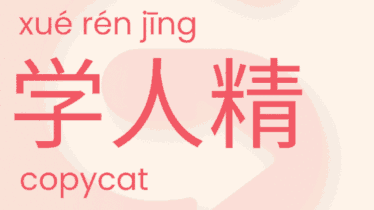Understanding 应该,必须,一定: Three Ways to Express “Should” and “Must” in Chinese
Today, let’s explore three important modal verbs (应该,必须,一定) that often confuse Chinese learners. Whether you’re just starting out or are at an advanced level, this guide will help you understand their differences and use them correctly.
1. Basic Meanings
First, let’s understand these words in their simplest forms:
- 应该 (yīnggāi) = should/ought to
- 必须 (bìxū) = must (absolute requirement)
- 一定 (yīdìng) = must/definitely/certainly
2. Key Differences in Strength
Think of these words on a scale of how strong the obligation is: 应该 → 一定 → 必须 (mild suggestion → strong certainty → absolute requirement)
3. Detailed Usage with Examples
应该 (yīnggāi)
Used for:
- Giving advice: 你应该多休息。 (Nǐ yīnggāi duō xiūxi.) You should get more rest.
- Moral obligations: 我们应该尊重老人。 (Wǒmen yīnggāi zūnzhòng lǎorén.) We should respect the elderly.
- Logical deduction: 现在八点了,他应该到家了。 (Xiànzài bā diǎn le, tā yīnggāi dào jiā le.) It’s 8 o’clock, he should be home by now.
必须 (bìxū)
Used for:
- Strict rules: 学生必须准时到校。 (Xuéshēng bìxū zhǔnshí dào xiào.) Students must arrive at school on time.
- Non-negotiable requirements: 坐飞机必须带护照。 (Zuò fēijī bìxū dài hùzhào.) You must bring your passport when taking a flight.
- Absolute necessity: 这个病必须马上治疗。 (Zhège bìng bìxū mǎshàng zhìliáo.) This illness must be treated immediately.
一定 (yīdìng)
Used for:
- Strong promises: 我一定会来参加你的婚礼。 (Wǒ yīdìng huì lái cānjiā nǐ de hūnlǐ.) I will definitely come to your wedding.
- Certainty: 他一定在家,我刚看见他的车。 (Tā yīdìng zài jiā, wǒ gāng kànjiàn tā de chē.) He must be at home, I just saw his car.
- Strong determination: 我一定要学好中文。 (Wǒ yīdìng yào xué hǎo zhōngwén.) I definitely want to master Chinese.
4. Common Mistakes to Avoid
❌ Wrong: 你必须来我的派对。 (Nǐ bìxū lái wǒ de pàiduì.) You must come to my party.
✅ Better: 你一定要来我的派对。 (Nǐ yīdìng yào lái wǒ de pàiduì.) You definitely should come to my party.
Explanation: 必须 is too strong for social invitations and can sound rude.


